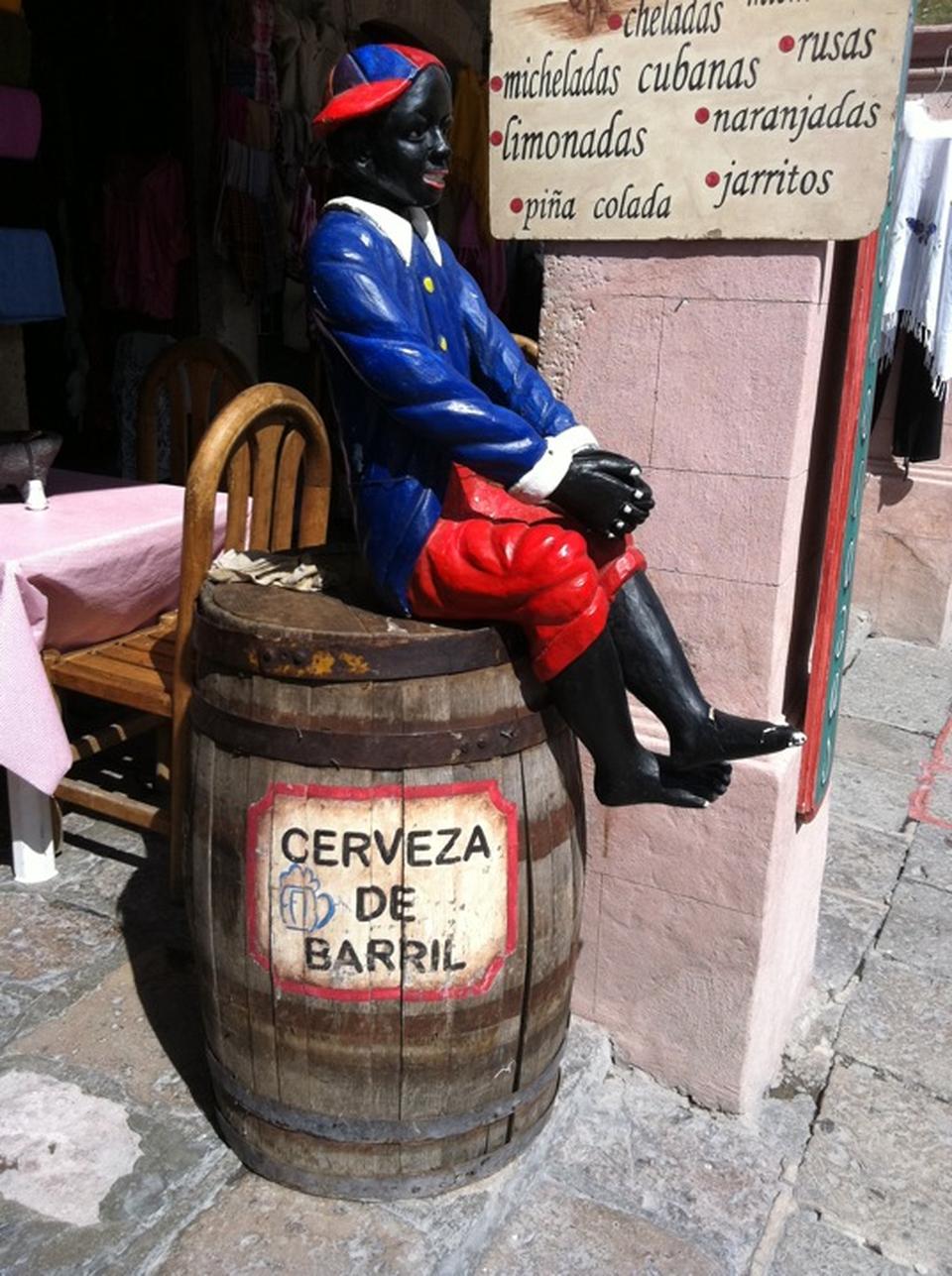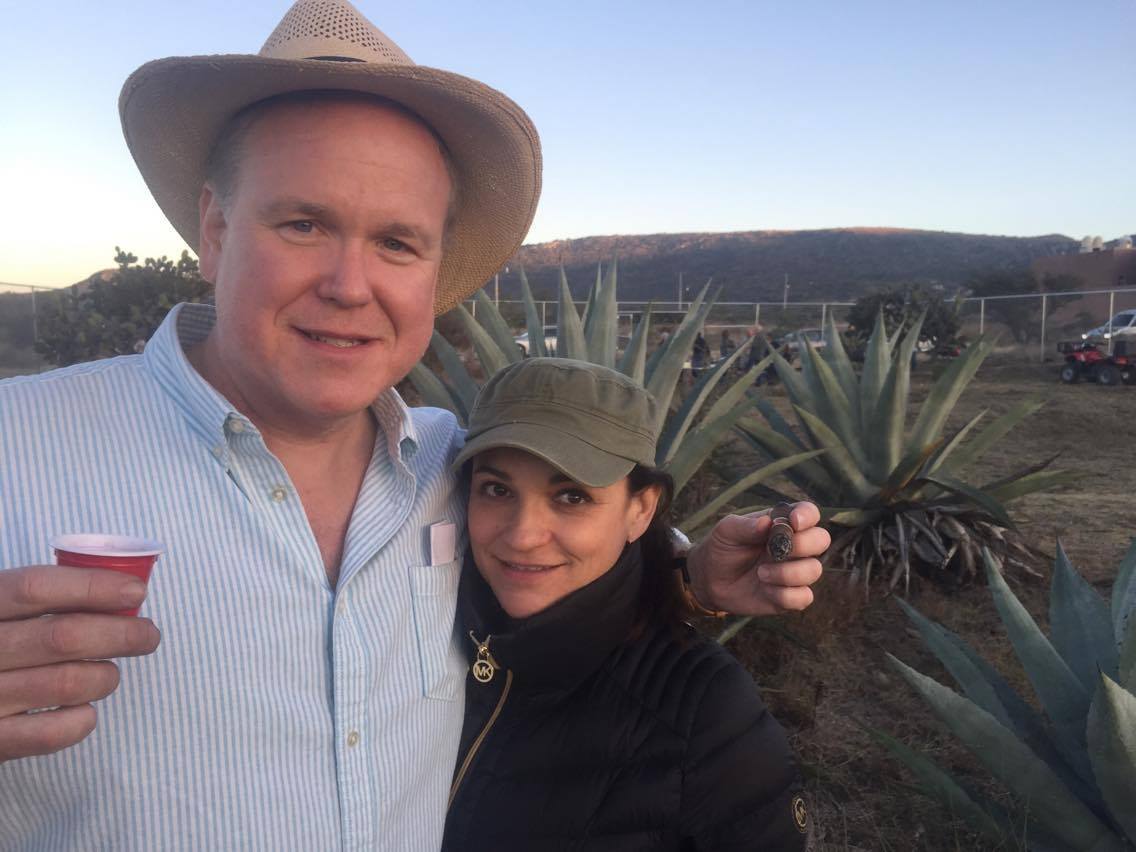American?
Some will remind you that you should never distinguish US folks by the term, “American,” as I did in the leading paragraph. Mexico is certainly part of North America, they say, making it’s people Americans too. They’ll maintain how arrogant it is to assert that your having been born in the USA should mean you can appropriate the term American for yourself!
It seems the ones who take this position are mostly those US expats always looking for some way to prove they are more culturally sensitive than you. They will tell you to call yourself a “norteamericano” or an “estadounidense.” But this is not thoughtfully considered. Norteamericano just means North American, and Mexicans are North Americans too, right? Estadounidense means “United States person,” but guess what Mexico is officially called? “The United Mexican States," (Estados Unidos Mexicanos). So why aren’t both of those just as potentially offensive?
Bottom line: so far almost every Mexican has called me an “American” or “Americano.” I’ll continue to keep an ear open on this, but at this point...soy americano. And, yes, they don’t tend to capitalize it.
Personal Space
Whether you’re walking down one of the many narrow sidewalks here in San Miguel de Allende, or a local grocery aisle, you’ll notice a very high incidence of people who don’t make way for others.
Don’t misunderstand. It's not when their backs are turned or when things are unusually crowded. I mean you are well within their peripheral vision, they are smack dab in the middle of the aisle with their cart angled to take up as much room as physically possible…and they sincerely seem not to notice you. If after a good long wait you finally say, “Con permiso,” they will look up with a shock as if to say, “Oh my Gosh. There are other humans, aren’t there? I totally forgot!"
Look, if I were in one of those countries where people are considered nasty or unfriendly, this might be understandable. But this is Mexico. And I can positively state that the default manner of those in my town is remarkably warmer and more pleasant than anywhere I’ve lived in the US. So I don’t for a moment believe it’s out of disrespect. I think it may have something to do with personal space. I’ve read that Latin Americans have a smaller personal space bubble than those from the US.
North of the border, unless an aisle is congested, most people tend to ease out of each other’s way when they notice you coming and are within six to eight feet. So maybe, while I’m thinking I should stop my cart a few feet before reaching them, they’re subconsciously thinking, “Shit. He won’t bang into me for like three or four seconds. I’ve got time.”
Ah well. I’m the immigrant here. I’m learning to adjust.
Punctuality
It’s mostly what you imagine. People are much less concerned with being on time here. This works for me, as I’ve usually been ten minutes late my whole life. But here ten minutes is nothing. 30-60 minutes late or more is very typical, and the real pisser is when they don’t show up at all, especially when they don’t even message you to let you know.
One of my best pals in Michigan was born in Mexico, although his family moved to the US when he was about 9. This dude was always famously late. Once he was supposed to meet me at an Applebee’s, and I finally called him after waiting 45 minutes. He answered his home phone with a sublimely casual tone.
- JOSH: Yelloooo?
- ME: Yeah, Josh, it’s me.
- JOSH: Yeah, bro.
- ME: I’m here at Applebee’s.
- JOSH: Yep, yep, yep.
- ME: We were supposed to meet 45 minutes ago.
- JOSH: Uh huhhh, yep.
- ME: And you’re still actually at home.
- JOSH: Yep. I’ll be there, bro.
When he slid into the booth I asked him why he was always so insanely late. A pretty philosophical guy, he presented the theory I’ve heard before that people who traced their lineage from warm regions are typically less earnest about timeliness than those who extend from colder climes.
“See, bro, back in the day people in Germany had to get those crops in the ground QUICK! No messing around. And NOT doing it meant you might die. But in the southern hemisphere? Not as important. We just kinda chill, bro.”
The fact is there are notable exceptions to this. I think the taxi system here is great—and competitive, especially now that Uber hit town a few months ago. So with both an incentive to win your future business, and an interest in maximizing their fares per hour, these hombres usually show up super rapido when you call, and are intent on getting you there toot sweet. But don’t expect this in most other areas of commerce or life in general. You’ve got to adjust.
Non Confrontational
Mexico's culture is well known as non-confrontational. On the one hand you don’t have to be too concerned about sudden angry encounters. That’s nice. But on the other hand, since they don’t want a confrontation, they’re surprisingly willing to lie in order to avoid one. And I’ve come to the conclusion that, in this culture, you’re supposed to let them do so. No matter how obvious the fib, to call them out on it is rude. Repeat: revealing a lie—rude; actually lying—not rude.
I’ve been moderating myself on this one. In the US, people don’t let you get away with such horse feathers. You can screw something up and we’ll let it slide—if you're straight with us. But we think if we’re paying for something, the very least we should expect is that you’re not lamely jerking our chains. But since (again) I’m the newcomer, I’ve decided to object only when I think it’s created a real problem—and not in every instance possible. Fact is I’d rather avoid being seen as the asshole gringo if I can, so I guess it’s a matter of choosing my battles.
Mexicans of Many Varieties
Occasionally I’ve heard Americans make disparaging remarks about Mexicans, and while they can kiss my ass, it also seems clear they don’t understand how diverse the Mexican people are. Believe it or not, I sort of get that part. In some areas of the US there is a great number of poor and/or undocumented Mexicans, and it’s not hard to identify them. It certainly stands to reason that those who are finding their way into the US include a high number who are poor, and if that’s what you’re seeing it’s not surprising you might come to equate “Mexican” with those poor people.
The funny thing? Once in awhile I find other Americans who speak with glowing praise for Mexicans, while still holding the same stereotype the above folks do. Here in San Miguel de Allende you don’t have to wait long before hearing a gringo complaining about some recent modernization in town. From a department store to an indoor, multi-vendor food market, they will hang their heads and moan about how such things are ruining their precious, humble Mexican town, that it’s the gringos who are doing it, and how terrible it must be for their impoverished neighbors to be exposed to something so blatantly gaudy.
Never mind that the great majority of the patrons are Mexican. Never mind that the local Mexicans are largely fine or delighted with it. Never mind that such things are widely available and popular throughout the country where there are very few gringos. To them it’s just not the real Mexico as they’ve idealized it: poor, timid and brown. Sure, there are general differences between the US and Mexican populations; that's what this article is about. But newsflash: just as with the US, Mexicans come in a wide variety of shades, attitudes and economic statuses--despite how you may have romanticized them.
Sensitivity
My take is that Mexican people are much less sensitive than Americans. Of course it could be that we’re simply sensitive about different things.
In the US a man learns to be pretty careful in his interactions with women, lest he be accused of violating some social code. If your smile is a bit too big or your glance a second too long, you run the risk of being called a creep or worse. But in Mexico females seem much less bothered—and often enjoy attention that may well be considered a compliment to them.

When Cecilia and I were visiting the little town of Bernal, about an hour and a half drive from SMA, I noticed a restaurant called, “Negritos.” There she, her 15 year old son and I ate some of the best gorditas we'd ever tasted. Impossible to miss was the life-size statue of a little black boy that would, in the US, unquestionably draw a storm of molotov cocktails. The way he’s dressed, in bare feet and with his pant legs rolled up would be considered an unacceptable racial stereotype. Can you imagine this place not being burned to the ground in the States? But I’ve yet to meet a Mexican of any shade who doesn’t consider such a thing ridiculous.
I think most Mexicans appreciate those who are just nice. While many are likely to be cautious about offending you, once you show them you’re a nice person and engage in a conversation with them, they’re likely to be very open and to appreciate your candor. I’m told the French have no patience with a visitor who doesn’t speak their language with proficiency. Well here in San Miguel de Allende the people are commonly pleasant about it, speaking slowly for you, often speaking in English and without a hint of irritation. “Poco a poco,” they say when you explain you’re still learning. (Little by little.)
Processing
Just one of the reasons I decided to live outside the US, is I thought it would be interesting to experience a different culture. Upon realizing some of our differences, it’s helped me reconsider fundamental perspectives.

For instance, why might we just expect that people will get out of the way because others happen to be passing through? In the US, it’s just considered a common courtesy. But maybe in Mexico, if you’re occupying part of the sidewalk, that’s your domain for the moment. Perhaps it’s a more libertarian position that passersby should simply recognize it’s that person's space, instead of expecting them to move aside? Maybe being punctual and expecting others to cater to our sensitivities is only one approach to life. Maybe another approach actually makes life more enjoyable for us. Maybe acknowledging some of the bigger cultural differences we might have with Mexicans can help us be more accepting of those smaller differences we have with each other.
Then again maybe not. Me? I like life better here. It’s friendlier, less stressful and a hell of a lot less expensive. And damn is the mezcal freakishly good.







